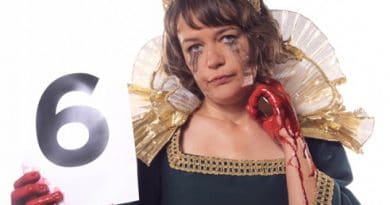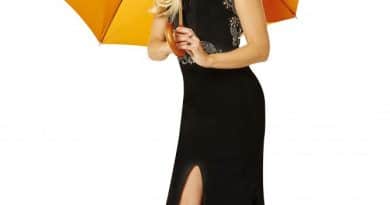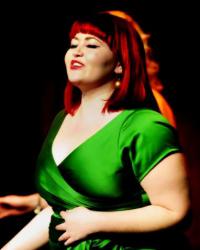Mike McLeish talks Melbourne Cabaret Festival 2016
The 2016 annual Melbourne Cabaret Festival has enjoyed a successful run this year under the artistic direction of Mike McLeish. We spoke to McLeish a week before the festival opened, chatting about the role of cabaret as an artistic outlet, and how he went about putting the festival together.
As the new AD of the Melbourne Cabaret Festival, what will audiences notice as different with you at the helm?
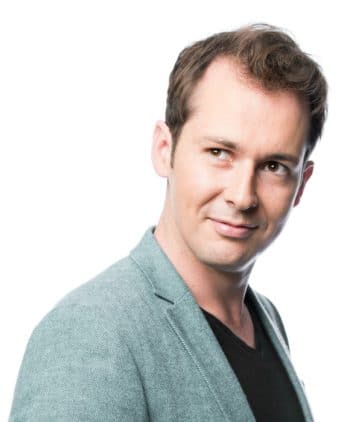
Going into the planning stages of the festival, did you have specific goals you wanted to meet? What were they?
I wanted to create a festival hub. I wanted to program a festival overflowing with interesting, authentic voices. I wanted to showcase our established best and brightest while also providing a platform to young, dynamic artists who may not get the opportunity to present their work elsewhere, at least not with the level of support that we’re able to offer them. I wanted to build on the past successes of the festival that David Read and Neville Sice created and make damn sure that its future is more than assured. I feel quite sure we’ve achieved many of these things. Some of the grander plans will take time to play out.
How did you go about choosing acts to perform at the festival?
We had a record number of submissions (again!) this year, so there was a swathe of quality shows from which to build a program. I like all sorts of different stuff, so I kept as open a mind as possible. I also tried to broaden my approach so as to create a program that could ideally achieve a broad appeal, but without making the whole thing too vanilla. I consulted with David and Neville a lot, because it would’ve been patently stupid not to. And I think ultimately we’ve managed to offer up a pretty tasty array of flavours.
What do you believe is the virtue or the point of cabaret for modern audiences?
Cabaret artists peddle all manner of truth. Imagine that! Hearing someone speak or seeing someone perform and knowing that everything they do, say or sing comes from a place of truth; an all too remarkable commodity in the modern age. Authenticity is as rare as hen’s teeth these days. Cabaret embraces and encourages authenticity. Good cabaret reaches out to you and confronts you and makes you think and demands your involvement (yes, sometimes literally). Being an audience member at a cabaret show isn’t a passive experience. It’s shared. Everyone in that room is a part of the show, like it or not. It’s a communal experience unlike any other.
Beyond that, it’s often an opportunity to witness an artist flexing their muscles and spreading their wings outside of their usual professional practice. Cabaret provides artists with the opportunity to harness their artistic expertise and unleash it in the most unexpected and personal of ways. But that’s the artists’ perks.
For audiences, cabaret gives them the opportunity to venture into the unknown. I mean, I don’t believe that any artform should have to justify its relevance or its virtues or its ‘point’ to an audience. It’s the audience’s responsibility to make those definitions for themselves. All too often, artists are expected to explain the expected tangible outcomes of their wares. Let the artists do their thing. Don’t force them to justify the existence of their art in an economic or social context. It can stifle good work and/or allow projects that simply match certain arbitrary criteria to float to the top. And that stuff ain’t always the cream. […] In order to discover the virtues of any art or artist, you just have to go and see it or them. Then you’ll figure out very quickly why you dig it or why you don’t. It’s completely subjective.
 The City of Stonington Council is sponsoring the Cabaret Festival – why is it important that big cultural events have the support of their local government?
The City of Stonington Council is sponsoring the Cabaret Festival – why is it important that big cultural events have the support of their local government?
Without that level of support, it’s very difficult for a festival to grow. If a festival isn’t embraced and supported by both the community and the council of the area in which it exists, it can never really reach its potential. Once a local government takes pride in supporting these sorts of events and festivals, those events and festivals have the potential not only to flourish themselves, but they can become a part of the cultural landscape and heritage of the area. Win win.
Cabaret has always been a fantastic medium for beginner performers, both on stage and as audience members. Why do you think that is?
Cabaret is a fantastic medium for performers at any stage of their careers. For younger performers, it offers a very unique training ground because one of the most crucial elements of cabaret is finding your voice. That can be a tricky and confronting thing for younger performers who, for the most part, may well have spent a lot of their artistic lives interpreting other people’s work and serving other people’s purposes. But searching for and finding and honing your unique voice as a performer is invaluable, and can only serve to make you a better performer across the board. Cabaret also teaches you an awful lot about audiences and how you relate to them. Not how to relate to them. How you relate to them.

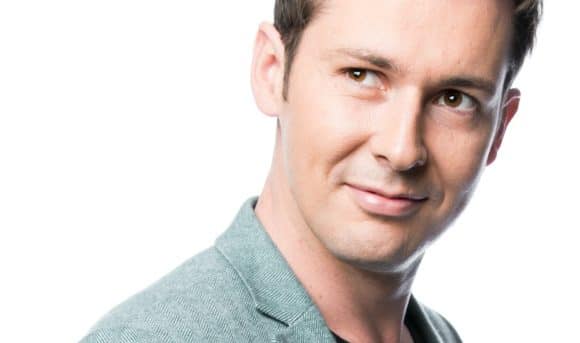
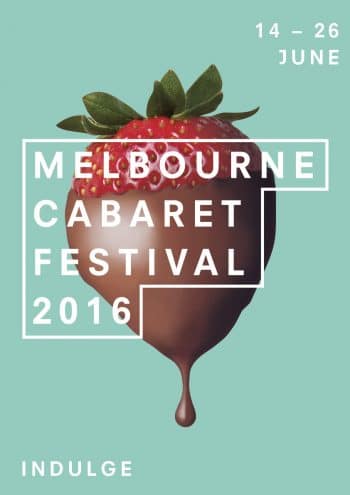 The City of Stonington Council is sponsoring the Cabaret Festival – why is it important that big cultural events have the support of their local government?
The City of Stonington Council is sponsoring the Cabaret Festival – why is it important that big cultural events have the support of their local government?